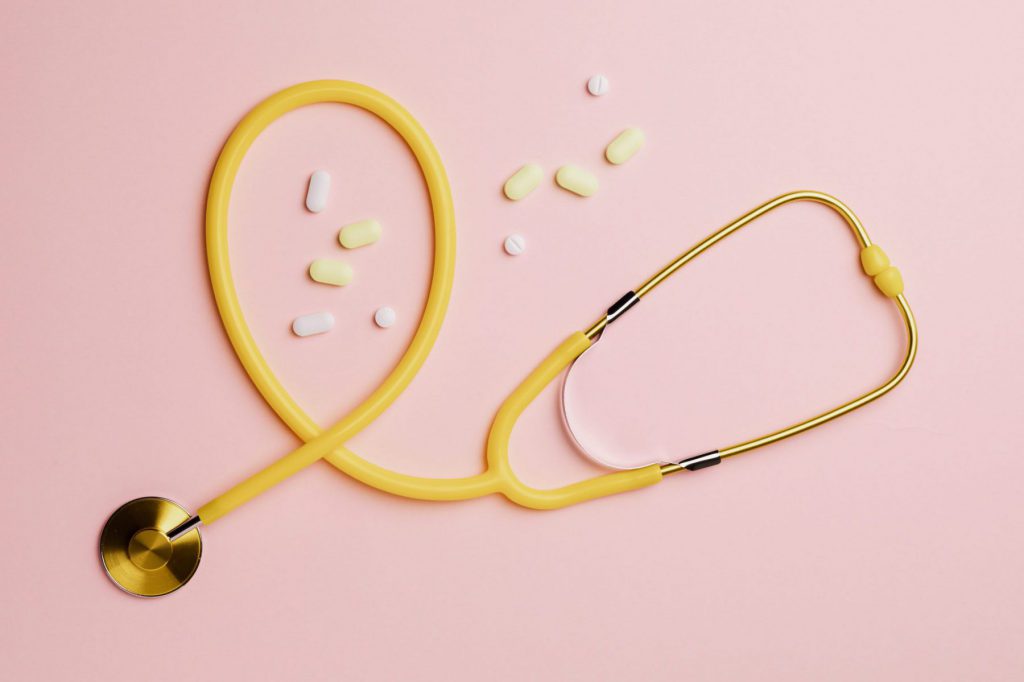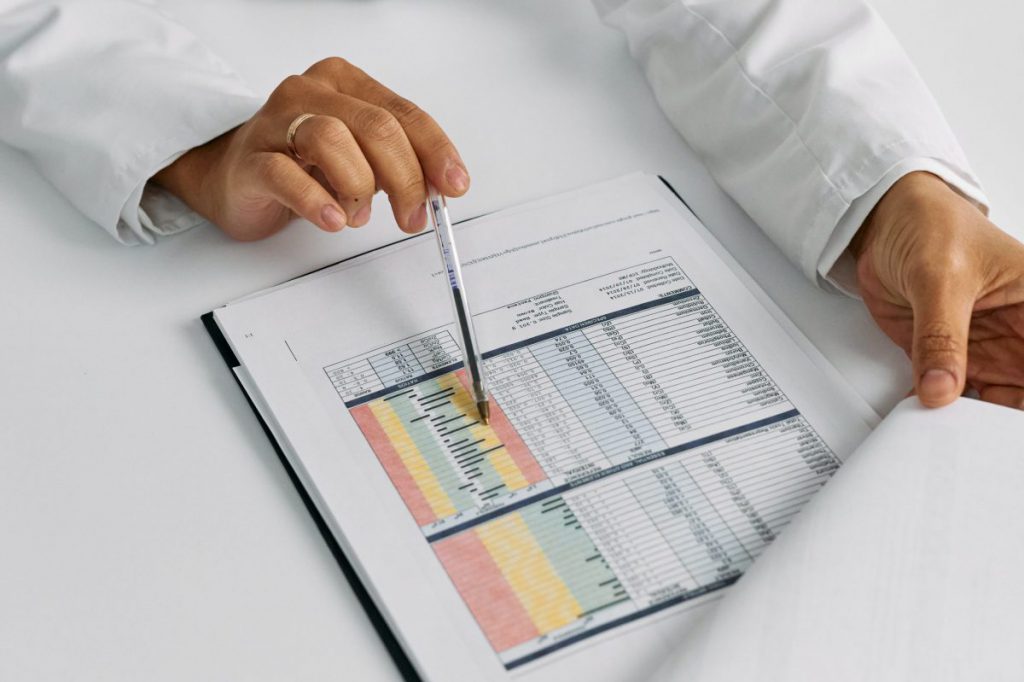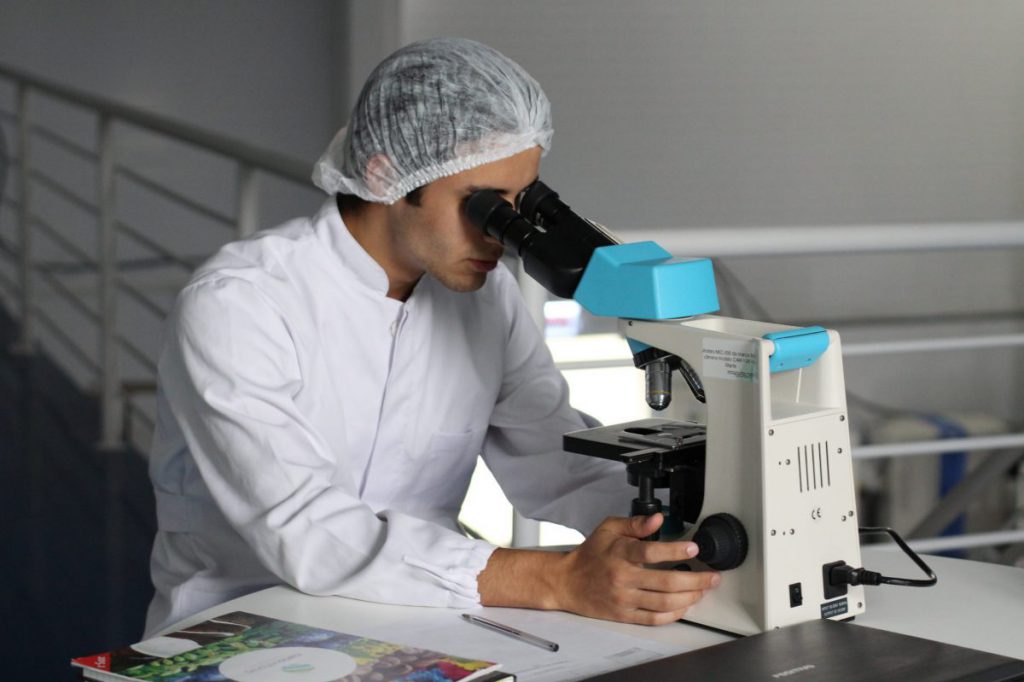
Can Eating A Healthy Diet Alone Get Us The Vitamins We Need?
LAST UPDATED: November 10, 2022
We are often told that eating a balanced diet will get us all of the nutrients and minerals we need to live a healthy life. However, even with the best diets, you can still be missing key nutrients that can affect your health.
On top of that, certain health conditions like vitamin deficiencies, genetic irregularities and diseases may limit the ability of our bodies to absorb nutrients from our diet alone.
One way to hit nutritional requirements and make up for what our diet is lacking is by taking premium quality vitamins and supplements tailored to our individual needs.

Finding the Right Nutritional Balance for Your Health
There is a lot that goes into achieving and maintaining your health. Consistently eating a balanced diet and exercising regularly should pave the way for a healthy lifestyle, but oftentimes that’s not enough to feel your best.
Health officials suggest that eating the right balance of nutrients will come from consuming:
- Vitamins, minerals, and antioxidants
- Proteins
- Healthy fats
- Complex Carbohydrates (both fibers and starches)
- And foods from all food groups (fruits, vegetables, grains, dairy, and proteins)
When it comes to eating a well-balanced diet, consistency is key. However, nutritional deficiencies, degrading soil health, the fast-paced and convenience-driven lifestyle many of us live, and environmental factors may make it harder for you to absorb all of the nutrients that your body needs to operate properly and efficiently.

Why Eating a Healthy Diet Falls Short
While we’re told that eating a balanced diet can get us vitamins we need, this may not be the case. Recent research suggests that people don’t regularly consume a varied diet, and they are also hampered by poor crop quality. So even if you are eating the healthiest diet, your food might still lack nutrients due to poor soils or genetic modification.
Even when consuming one of the best diets for our health, less than 1% of people were actually getting the nutrients they needed for their bodies and brains to thrive.
Implementing a “well-balanced diet” is hard to come by. Many of us are so busy throughout the day that we usually resort to eating out of convenience, which typically lends itself to highly-processed, inflammatory foods. Therefore, it’s difficult to consistently know what we are getting in our bodies without proper planning or awareness of what we’re ingesting.
Chances are you are not getting the right nutrients that you need on a basic diet alone.

Common Nutritional Deficiencies
Even if you are consuming the best diet, you may be hampered due to a nutritional deficiency. Reports suggest that nearly 92% of Americans have a vitamin deficiency.
A key NHANES survey called What We Eat in America found that nutritional deficiencies were rampant.
According to the research, at least 7 out of 10 Americans were deficient in calcium, vitamin E, or potassium. Fifty percent of the population was deficient in vitamin A, vitamin C, and magnesium. A large majority of the population, including 90% of BIPOC Americans, 70% of elderly, and 50% of the general population were also vitamin D deficient.
Here are some common nutritional deficiencies and how they affect our health:
- Iron deficiency: One of the most common deficiencies globally (over 25%), lacking heme iron and non-heme iron can cause anemia or the inability for your blood to carry oxygen. Sources for iron are red meat, beef liver, shellfish, beans, seeds, and leafy greens.
- Iodine deficiency: Iodine is essential for thyroid function; however, iodine deficiency is extremely common and affects one-third of the world’s population. Sources for iodine include fish, dairy, eggs, and seafood. Some countries even enhance table salt with iodine to address deficiencies.
- Vitamin D deficiency: A fat-soluble vitamin, vitamin D functions as a steroid. Vitamin D only comes from sun exposure (and supplementation), so it is one of the most common vitamin deficiencies. Symptoms are extremely subtle, and many people consider supplementing with vitamin D just to be safe.
- Vitamin B12 deficiency: A water-soluble vitamin, vitamin B is necessary for blood formation and brain and nerve function. Every cell in the body needs vitamin B12, but you can only get it through food or supplements. Vitamin B12 absorption decreases with age. Vitamin B12 deficiency is highly prevalent among vegetarians and vegans, making it all the more important for vegetarians, vegans, and others with restricted diets to take a supplement.
- Calcium deficiency: Calcium is necessary for every cell in the body, including bones and teeth. Without calcium, even your muscles, hearts, and nerves would struggle. Unfortunately, even severe calcium deficiency is extremely common. Sources of calcium include boned fish, dairy, and leafy greens.
- Vitamin A deficiency: An essential fat-soluble vitamin, vitamin A helps with our skin, teeth, bones, and cell membranes. Vitamin A is consumed mostly through the diet. Still, chances are individuals are mostly getting pro-vitamin A (through sweet potatoes, carrots, and leafy greens) and no preformed vitamin A (which is through beef liver and fish liver oil). Low vitamin A can lead to a suppressed immune function, blindness, and mortality in children.
- Magnesium deficiency: Low magnesium is extremely common (almost half the US population has it) and is usually due to poor consumption, diseases, drug use, or reduced digestive function. Unfortunately, low magnesium can lead to diabetes, heart disease, and osteoporosis; it can also lead to heart rhythm abnormalities, muscle cramps, restless leg syndrome, fatigue, and migraines when severely deficient.
A health provider may be able to test for a nutritional deficiency. However, you should also consider getting your DNA tested for nutritional health. This method is way more effective at spotting genetic sensitivities to nutritional deficiencies.

Nutritional DNA Testing for Your Health
Eating a balanced diet is extremely important, as it makes sure that your body is working efficiently. However, most people do not consume a varied diet and we still miss out on key essential micronutrients.
For most of us, eating a perfectly well-balanced diet will never be enough. Without the vitamins and nutrients your body needs, you may come across health problems like vitamin deficiency anemia and chronic conditions.
Poor diet can lead to significant health risks. The Center for Science in Public Interest associates 4 of the top 10 leading causes of death in the US (heart disease, cancer, strokes, and type 2 diabetes) as linked to poor diet. A poor diet might also cause poor work or school performance, frequent infections, obesity, and developmental problems (in children).
With DNA testing for nutritional health, you can hack your body’s nutritional relationships and actually see what your body is lacking on a molecular level. With this information, plus your lifestyle consideration, you can modify your diet and take vitamins and supplements to make up for your body’s unique nutritional needs.
By tapping into your nutritional genetics (aka nutrigenomics), you’ll have greater control over your health and finally feel your best!

